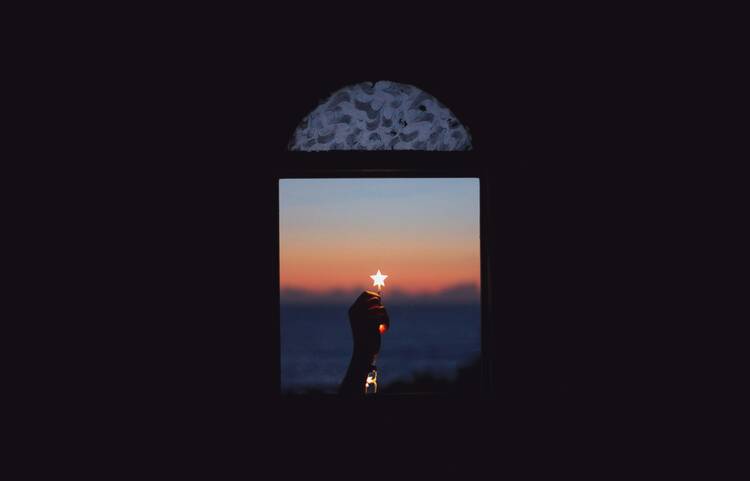A Reflection for the Memorial of Saint Barnabas, Apostle
Find today’s readings here.
Jesus said to his disciples:
“You are the salt of the earth.
But if salt loses its taste, with what can it be seasoned?
It is no longer good for anything
but to be thrown out and trampled underfoot.
You are the light of the world.
A city set on a mountain cannot be hidden.
Nor do they light a lamp and then put it under a bushel basket;
it is set on a lampstand,
where it gives light to all in the house.
Just so, your light must shine before others,
that they may see your good deeds
and glorify your heavenly Father.” (Mt 5:13-16)
Catholics who grew up in the 1980s and 1990s will remember that we had some great liturgical music—and our fair share of terrible liturgical music. Along with bangers like “Make Me a Channel of Your Peace” and “Here I Am, Lord,” we also had some surely well-intentioned but regrettable standards like “They’ll Know We Are Christians by Our Love” and “We Are the Light of the World.” Gen-Xers might be forgiven for having looked around now and then as teenagers when the latter two were sung and thinking: “well, not really.” It takes a bit of chutzpah, after all, to belt out a claim like that.
But the lyrics of “We Are the Light of the World,” which draw from the Beatitudes as well as today’s Gospel reading from Matthew, do speak to a tension that lies at the heart of the Christian life. Immediately after we sing “Blessed are they who are meek and humble” and then ask the Lord to make us meek and humble, we announce that “We are the light of the world; may our light shine before all.” What’s this? How did we go from Mother Teresa to Muhammad Ali so quickly? It’s not just the song that is the issue: It’s also a question of how to properly live life as a Christian.
I have a Jesuit friend who has a joke about this tension between being humble and being a star. St. Ignatius exhorted his followers to seek humility at all times and even delineated the degrees of humility, with the purest form of humility being not just accepting the necessity to take one’s lumps, but actually to desire “poverty, humiliation and loss rather than gain.” This Jesuit, tongue firmly planted in cheek, likes to announce: “I am proud to say that I excel above all others in my humility.”
If we are to be a city on a mountain, how can we desire to be meek and humble? If the world needs to be illuminated by our light, how can we pray and do good works in secret—which Jesus also tells us to do in the very next chapter of Matthew? Pope Francis speaks often about the work of evangelization (as opposed to proselytization) being one of attraction, drawing people to Christ and to the Gospel by the example of our own lives. Which sounds like it requires one to be a bold and public icon—but isn’t that at odds with Jesus’ message in so many other ways?
Perhaps it comes down to what one means by being a light or a city on a mountain. We associate those metaphors with fame and celebrity, with public attention and acclamation, with recognition of our gifts and virtues. A movie star, after all, is named after a star—an entity that emits light. And in the United States, perhaps the most famous paraphrase of the “city set on a mountain” metaphor is a complete misuse of John Winthrop’s warning to residents of the Massachusetts Bay Colony that their sins and failings would be visible to all—which somehow centuries later became instead a claim to American exceptionalism, that the United States (to quote Ronald Reagan) was a “shining city upon a hill” that all the world admired.
But what if we see these metaphors as being less about attention and acclaim and more about what we have to offer others? A city in Jesus’ time was built on a hill because the hill provided safety and security. A city on a mountain also offers the best vantage point from which to survey one’s environment. Come here in times of danger or duress, that city says. Similarly, a lamp on a stand doesn’t shine upon itself; it brings light to the darkness all around it. See things as they truly are; do not stumble and do not grasp at shadow or illusion, that lamp says. Under the bushel, it hoards its heat and light. On a stand, it shares what it has.
I’m still not a big fan of “We Are The Light of the World.” But I think I have an inkling of what Jesus was getting at.








